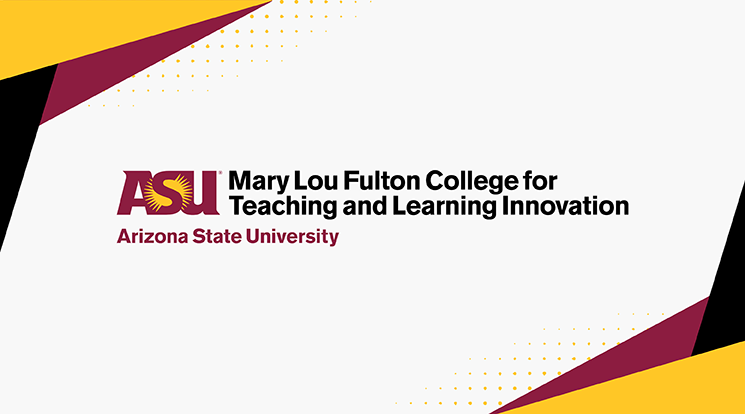The evolution of policy and practice in how preservice teachers learn

"Learning to Teach in England and the United States,” written by Maria Teresa Tatto and her colleagues, has been released by Routledge Taylor & Francis Group. Tatto is the Southwest Borderlands Professor of Comparative Education at Mary Lou Fulton Teachers College and professor in the division of educational leadership and innovation at ASU.
The book is the transatlantic collaboration between Tatto and a group of four teacher educators at the Department of Education at the University of Oxford in England.
Tatto and her team lay out an exhaustive examination surrounding the challenges of learning to teach on both sides of the Atlantic. The impetus for her research struck when Tatto became intrigued by the rapid transformation that teacher education in England underwent in the 1980s, and a similar emergence in the U.S. that occurred over the next 30 years. She then wrote a proposal to support the investigation of the evolution of teacher education policy in England and the U.S. exploring parallel trends including a strong push for privatization of public education, reduced credentials to enter the teaching profession and a general denigration of teaching and teacher education.
"The central idea was to study the impact of accountability and market-based policies on these systems, and specifically as these affect how teachers learn to teach in the last stage of their preparation: during the internship," Tatto says.
Tatto’s journey
Tatto’s proposal was granted and she spent a year-and-a-half in Oxford refining her research with her team. “Our strategy was to study our two teacher education programs as renowned examples of university and school partnerships with a long history of sustained success in each country,” says Tatto. The study included classroom observations, analyses from outside observers, and interviews with program designers and policy makers.
Doing a comparative study, Tatto says, granted her team the luxury of analyzing how similar reforms act in different contexts and how these comparisons could differentiate between what was universal and what was culture specific.
“As teacher educators,” Tatto says, “we were very interested in the possibilities of seeking to make sense of what was going on in the processes of becoming a teacher in the new climate of accountability, competition and standards in both countries.”
Significant debate surrounds England and the U.S. in regard to the best approaches to preservice teacher education. And in turn, these debates create substantial uncertainty about policy and practice in both countries.
“These debates not only continue, but have become more intense and widespread as countries engage in reforms of their education systems in a constantly changing global dynamic,” Tatto says.
The team examined:
· How and what do beginning teachers learn?
· When and where do they learn it?
· How do pressures introduced by new reforms affect their opportunities to learn in schools?
The team adopted an innovative methodology based on recent developments in sociocultural theory. This led them to new insights concerning the factors that influence the learning of beginning teachers. For example, they identified how important the question of 'alignment' or 'non-alignment' is. By these terms, they are referring to the correspondence or otherwise of the values and practices adopted not only by the individual beginning teacher, but also by the school within which they are developing their practice and the university which is managing their program. Furthermore, they look at the interaction between the micro (personal), meso (institutional) and macro (societal) levels of the contexts within which the learning is taking place.
Tatto says she hopes her team’s work and findings “will contribute to deeper understandings of the issues involved in promoting the development of knowledgeable and committed teachers for all children and youth.”
Excerpt: “Learning to Teach in England and the United States”:
Learning to teach has long been recognized as a developmental process that is highly complex, and demanding. This learning involves adopting and developing several identities in order to negotiate the tacit or explicit rules and demands of different institutions and social practices. In addition to their own experiences as students themselves, student teachers may learn: from their peers; from the expertise of other teachers operating in particular settings; from their own pedagogical interactions with young people and their reflections on practice; from critical incidents involving mistakes made by themselves and those teachers they observe; or from testing and critiquing theories in practice. They learn in the social and cultural settings of schools and universities as well as at the desks where they complete academic assignments. They also learn at particular historical junctures within particular teacher education programmes and partnership schools that are reacting to policy changes as well as political constraints and demands. The development of these student teachers is both intensely personal, and highly social, requiring almost constant interaction with other adults and children.